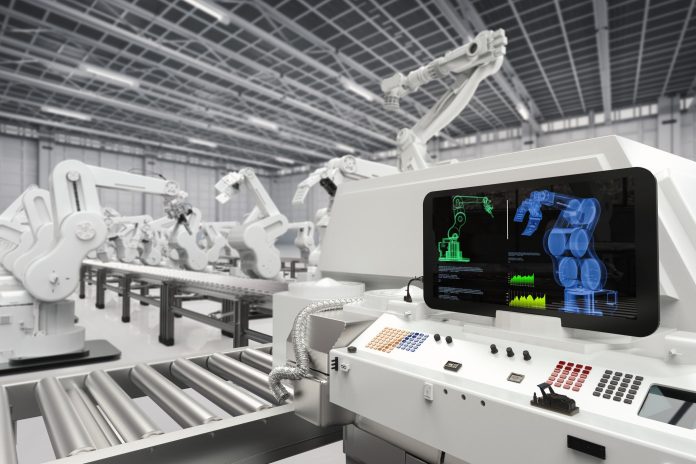By James McKew
The annual “World Day for Safety and Health at Work” on 28 April aims to raise awareness for the prevention of occupational injuries and the possible outbreak of infectious diseases at work. The COVID-19 pandemic has brought about changes to every aspect of work worldwide and Singapore is seen shifting towards new working arrangements. In 2020, Singapore reported a total of 11,350 workplace injuries, a significant figure that outlines more attention to the fundamentals of workplace safety is needed.
Protecting humans from workplace injuries
By design, Collaborative robots (cobots) from Universal Robots can support a healthier and safer working environment through process innovation and help raise productivity. Cobots can perform tasks that may be dangerous or injury-prone for humans. With built-in safety features that slow the robot arm when a human enters its workspace perimeters, cobots can keep human colleagues safe from occupational injuries as it takes on repetitive and dangerous tasks in the manufacturing and other sectors.
Universal Robots’ adjustable safety system allows companies to adjust a range of parameters to reduce the risks involved with implementing an industrial robot application. These include limiting the force, speed, power, momentum of the robot arm, or restricting its workspace using programmed safety boundaries (without the need to erect physical barriers). Productivity gains, along with the inherently safe design of cobot solutions mean this new automation technology could reduce up to 72% of the common causes of injury in manufacturing environments.
Additionally, Vinacomin Motor Industry Joint Stock Company (VMIC), a state-owned coal and mining giant based in Vietnam, deployed UR10 cobot due to the capabilities of working alongside humans without safety cages (upon risk assessment). UR10 cobot’s in-built safety features have enabled operations to stop when a force exceeding the robot’s safety pre-set settings are detected. This allows employees to feel at ease when working alongside cobots. The successful adoption of Universal Robots at VMIC has greatly benefited the company by enhancing productivity and increasing orders by 50 – 60 percent.
Moving closer to the vision of Industry 5.0
As man and machine work together on the smart factory floor, safety and compliance requirements of this new evolved workplace have become paramount. Undoubtedly, a collaborative workforce with humans and robots complementing each other in their roles and offer significant opportunities to enhance manufacturing productivity, innovation, safety, and job satisfaction at the workplace. Additionally, companies can achieve a faster Return On Investment (ROI) by using cobots to free up workers’ time, allowing them to manage higher productivity processes and ultimately acquire new skills.
Unlike traditional robots that require engineer-level programming, cobots are designed to make programming simple through human-machine interfaces (HMI) familiar to anyone who has used a smartphone. For more complex applications, Universal Robots has a comprehensive network of Certified System Integrators and Authorised Training Centres ready to support users with day-to-day operations after the initial installation. By eliminating the need for formal education in programming or robotics, such interfaces and capabilities make the skills gap and learning curve for using cobots diminishingly small.
For example, PSG College of Technology, one of India’s leading engineering colleges, invested in UR5 cobot to create an enriching experience in the classroom and provide a safe learning environment for students. Since traditional industrial robots are large and unsafe, they are kept inside cages, preventing students from working with them. Additionally, the complex programming of these industrial robots was difficult for students to learn and customisation was also cumbersome. Whereas UR5 cobot has the capabilities of operating without safety cages (upon risk assessment), allowing students to carry out hands-on experiments with industrial applications. In line with their mission to have the latest technology and to create a reputable robotics lab for students, the college incorporated cobots in their robotics program and encourages students to become industry-ready by working with these Industry 4.0 technologies.
With cobots, manufacturers no longer need to worry about the impacts caused by work challenges and workplace accidents. Now, even colleges are seen deploying cobots to create a safe learning environment for students interested in robotics. The collaboration greatly reduces the time, effort, and costs associated with using the same cobots for various tasks as a cobots’ flexibility translates to a significantly faster ROI.
James McKew is Regional Director Asia-Pacific at Universal Robots.






















